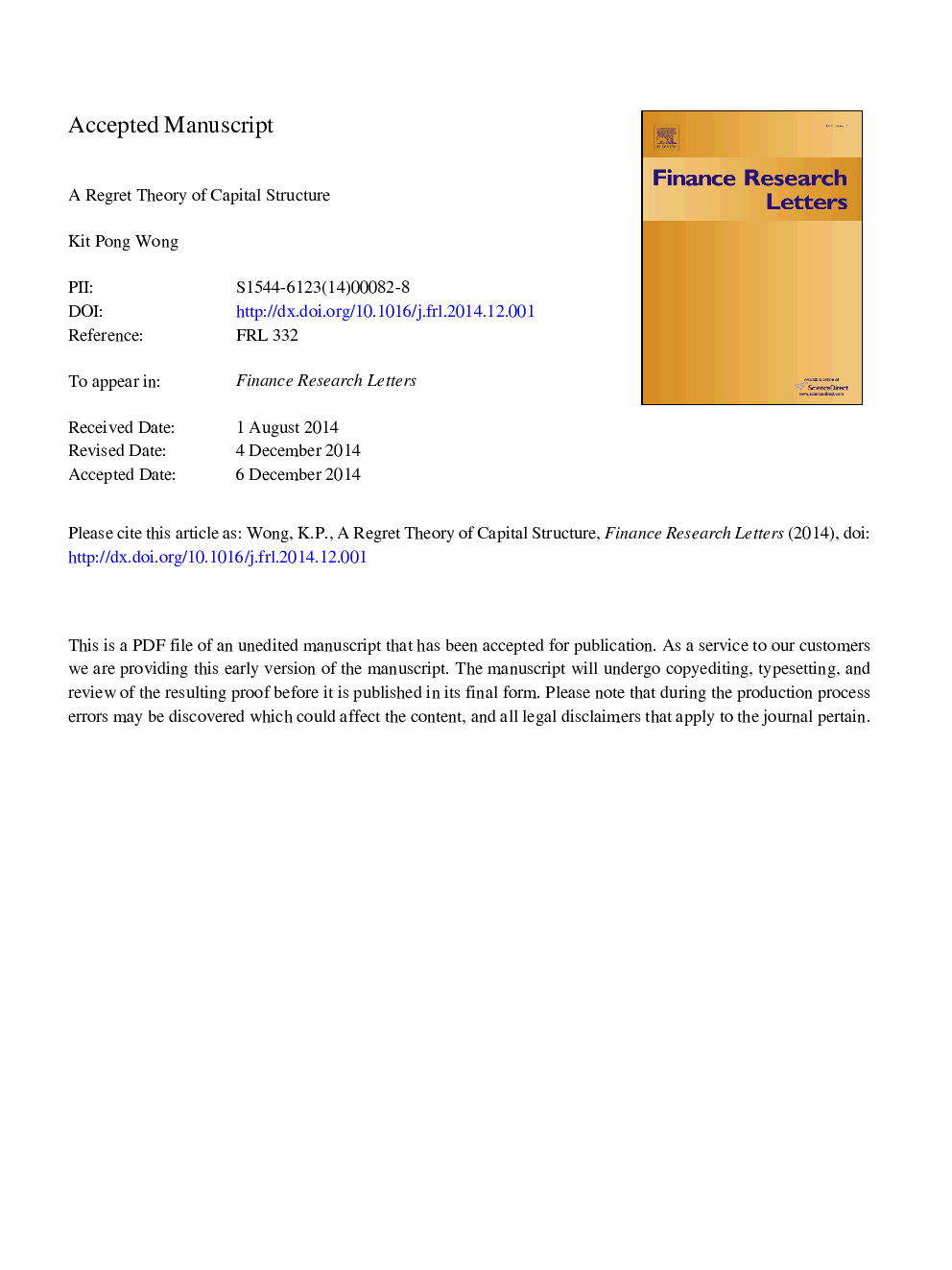| Article ID | Journal | Published Year | Pages | File Type |
|---|---|---|---|---|
| 5069553 | Finance Research Letters | 2015 | 17 Pages |
Abstract
This paper examines the optimal capital structure of a firm that delegates its financing decision of a risky project to a manager who is both risk averse and regret averse. Regret aversion is characterized by a utility function that includes disutility from having chosen ex-post suboptimal alternatives. We show that the manager optimally opts for zero leverage if risk aversion is relatively more important than regret aversion in representing the manager's preferences. Otherwise, the optimal capital structure is interior such that the optimal amount of debt increases when regret aversion becomes increasingly more important than risk aversion in representing the manager's preferences. We further show that the firm's market leverage ratio is inversely related to the project's profitability and to the firm's market-to-book ratio. These comparative static results are consistent with the robust evidence documented in the literature on empirical capital structure.
Related Topics
Social Sciences and Humanities
Economics, Econometrics and Finance
Economics and Econometrics
Authors
Kit Pong Wong,
